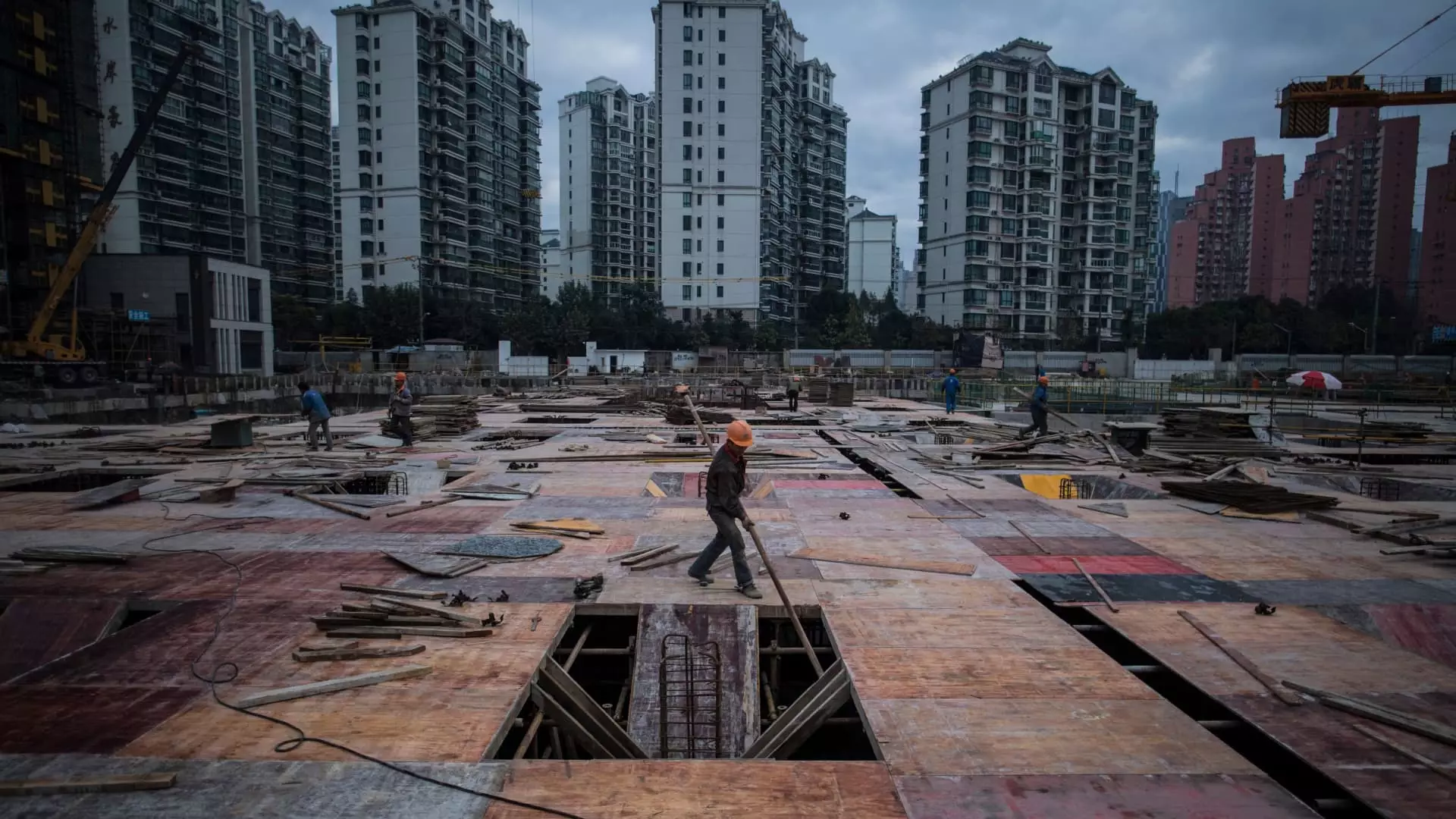The property sector in China has faced significant turmoil in recent years, gradually deteriorating under the weight of various economic pressures. Despite recent stimulus initiatives aimed at revitalizing the market, analysts suggest these measures have only provided a fleeting glimmer of hope rather than a substantial turnaround. The reality remains stark: the sector grapples with ongoing challenges that go beyond mere sentiment boosts.
During the recent Golden Week holiday, which traditionally serves as a barometer for consumer confidence and spending, reports indicated a modest uptick in home sales in certain urban centers. According to data from the China Index Academy, average daily sales in Beijing soared by 81%, showcasing a sign of increased homebuyer optimism. However, this isolated surge starkly contrasts with the broader picture across the nation, where average daily transactions in new homes plummeted by 27% compared to the previous year. Notably, key tier 1 cities such as Shanghai, Guangzhou, and Shenzhen witnessed declines in sales by 61%, 59%, and 57%, respectively.
This disconnect between Beijing’s performance and that of other major cities underscores the fragmented nature of China’s property market. The overall sales figures during the Golden Week have been declining since 2021, hitting a drastic low this year with only 107,000 square meters sold daily, significantly down from the peak of 177,000 square meters in 2021.
While the recent sales spikes in certain areas may suggest a temporary recovery, experts agree that this should not be interpreted as a decisive turnaround for the industry. Analysts, such as William Wu from Daiwa Capital Markets, have emphasized that the current policy moves might instill some short-term confidence but fail to address the underlying issues besetting the market.
The property sector still contends with cash-strapped developers, towering inventories of unsold homes, and incomplete projects. The government has tried to buoy buyer morale with a slew of measures, including lowering mortgage rates and adjusting down-payment ratios. However, as noted by Kenneth Ho of Goldman Sachs, there is an apparent lack of comprehensive strategies aimed at reducing the excess inventory that saturates the market.
The data from these sales does, however, present a dual narrative. On the one hand, improvements seen in certain areas during the Golden Week holiday could hint at a shifting consumer sentiment. On the other, the overall decline across major markets raises questions about the sustainability of such a recovery. Experts advocate for a broader analytical lens, suggesting that sales figures should be assessed over longer periods to accurately measure the initiatives’ effectiveness.
Shen Meng from Chanson & Co. noted that while sales did rebound by 23% compared to the same short holiday period last year, this superficial increase should be treated with caution. It’s critical to recognize that while the end-of-month purchasing patterns could lead to more significant improvements in sales figures, a consistent recovery hinges on sustained confidence rather than just holiday-induced spikes.
The challenges facing China’s property market are deeply entrenched and multifaceted. While recent initiatives may provide a short burst of activity, they have not fundamentally altered the structural dilemmas. The government faces the Herculean task of not only addressing buyer sentiment but also revitalizing the financial health of property developers who have struggled under the burden of debt and large inventory levels. Experts and analysts alike call for robust action that goes beyond temporary measures, acknowledging that while the path to recovery is fraught with complexities, an impactful solution is essential to stabilize one of the world’s largest property markets.
While there may be flickers of hope, the road to recovery for China’s real estate sector is expected to be long and arduous, requiring comprehensive policies and strategic interventions to produce enduring results.


Leave a Reply